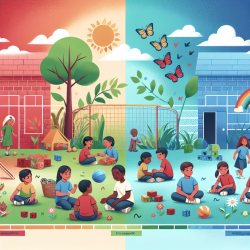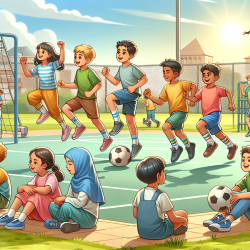Introduction
Peer violence in schools is a pervasive issue that affects children globally, leading to adverse outcomes such as depression, anxiety, and poor academic performance. A recent study conducted in Pakistan, titled "Right To Play’s intervention to reduce peer violence among children in public schools in Pakistan: a cluster-randomized controlled trial," provides valuable insights into how structured play-based interventions can significantly reduce peer violence and its associated negative impacts.
The Study
The study, conducted over two years in 40 single-sex public schools in Hyderabad, Pakistan, involved 1,752 sixth-grade students. The intervention consisted of biweekly structured play sessions led by trained coaches, followed by discussions designed to reflect on the activities and connect them to daily life experiences. The primary outcomes measured were peer violence victimization, perpetration, and depression.
Key Findings
The results were promising, showing significant reductions in peer violence and depression among students who participated in the intervention compared to those in the control group. For instance, peer violence victimization decreased by 33.3% for boys and 58.5% for girls in the intervention group, compared to 27.8% and 21.3% respectively in the control group. Similarly, depression scores dropped by 7.2% for boys and 9.5% for girls in the intervention group.
Implications for Practitioners
For practitioners in the field of child development and education, these findings underscore the effectiveness of play-based interventions in reducing peer violence. Implementing similar programs in schools can foster a safer and more supportive environment for children, promoting their mental health and well-being.
Encouraging Further Research
While the study provides strong evidence for the effectiveness of play-based interventions, further research is needed to explore their long-term impact and adaptability in different cultural contexts. Practitioners are encouraged to contribute to this growing body of research by evaluating the implementation of such programs in their own settings.
Conclusion
The Right To Play intervention in Pakistan demonstrates that structured play-based programs can be a powerful tool in reducing peer violence and improving mental health among school children. By incorporating these findings into practice, educators and therapists can make data-driven decisions to enhance the outcomes for children in their care.
To read the original research paper, please follow this link: Right To Play’s intervention to reduce peer violence among children in public schools in Pakistan: a cluster-randomized controlled trial.










